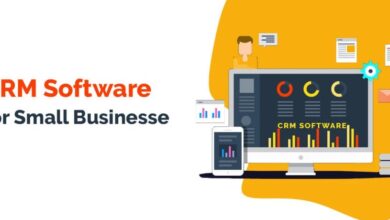Power of Help Desk Software in Small Businesses

In the dynamic landscape of small businesses, where every customer interaction can make or break a reputation, the role of effective customer support cannot be overstated. As businesses strive to provide unparalleled service, the implementation of robust help desk software emerges as a game-changer. In this article, we delve into the transformative power of help desk software in small businesses, exploring its benefits, key features, and the impact it can have on customer satisfaction and overall business success.
Understanding the Essence of Help Desk Software in Small Businesses
1. Streamlining Customer Support
In the fast-paced world of entrepreneurship, time is of the essence. Help desk software acts as a central hub for customer queries, allowing businesses to streamline and organize support processes efficiently. Instead of juggling between multiple communication channels, businesses can manage customer interactions in a unified platform, minimizing response times and ensuring a seamless customer experience.
2. Enhanced Communication
Clear and effective communication is the cornerstone of customer satisfaction. Help desk software provides a structured communication framework, ensuring that customer queries are promptly addressed and resolved. With features like automated responses and ticketing systems, businesses can maintain open lines of communication, fostering trust and loyalty among their customer base.
3. Ticketing System for Prioritization
In the world of small businesses, where resources are often limited, prioritizing tasks is crucial. Help desk software introduces a ticketing system that categorizes and prioritizes customer issues based on their urgency and importance. This enables businesses to allocate resources efficiently, ensuring that critical issues are addressed promptly while maintaining a systematic approach to problem resolution.
The Impact of Help Desk Software on Customer Satisfaction
1. Personalized Customer Interactions
Small businesses thrive on personal connections with their customers. Help desk software enables businesses to store customer information, allowing support agents to personalize interactions. Whether it’s addressing a customer by name or understanding their purchase history, this personalized approach significantly enhances the overall customer experience.
2. 24/7 Accessibility
Customer issues don’t adhere to a 9-to-5 schedule. Help desk software empowers businesses with the ability to offer round-the-clock support. Whether it’s a technical glitch or a simple query, customers appreciate the accessibility of support services at any time. This not only improves customer satisfaction but also sets small businesses apart from competitors.
3. Proactive Issue Resolution
Anticipating customer needs and resolving issues before they escalate is a proactive approach that can elevate a business’s reputation. Help desk software often comes equipped with analytics tools that enable businesses to identify recurring issues and address them at the root. By proactively resolving problems, businesses can enhance customer satisfaction and build a positive brand image.
Key Features That Empower Small Businesses
1. Knowledge Base Management
Help desk software often includes a knowledge base management system, allowing businesses to create a repository of frequently asked questions (FAQs) and informative articles. This empowers customers to find solutions independently, reducing the workload on support agents and enabling businesses to focus on more complex queries.
2. Multi-Channel Support
Small businesses operate in a diverse digital landscape where customers may reach out through various channels – email, chat, social media, or phone. Help desk software consolidates these channels into a single interface, ensuring that support teams can manage and respond to inquiries seamlessly, regardless of the platform through which they are received.
3. Automation for Efficiency
Automation is a key ally for small businesses looking to optimize their operations. Help desk software allows businesses to automate routine tasks, such as ticket assignments, responses to common queries, and follow-up processes. This not only improves efficiency but also frees up valuable human resources to focus on more complex and strategic aspects of customer support.
Choosing the Right Help Desk Software for Small Businesses
1. Scalability
Small businesses are dynamic entities that may experience rapid growth. When selecting help desk software, scalability is a critical factor. The chosen software should be able to adapt to the evolving needs of the business, accommodating an increasing volume of customer interactions without compromising performance.
2. User-Friendly Interface
The adoption of any new software hinges on its usability. Small businesses often lack the luxury of extensive training periods. Therefore, the chosen help desk software should boast an intuitive and user-friendly interface, allowing support agents to quickly grasp its functionalities and provide efficient assistance to customers.
3. Integration Capabilities
To maximize the benefits of help desk software, integration with existing business tools is essential. Whether it’s syncing customer data with a CRM system or linking to e-commerce platforms, seamless integration ensures a cohesive workflow. Businesses should opt for help desk solutions that offer compatibility with their existing tech stack.
Realizing Business Success Through Help Desk Software
1. Improved Customer Retention
In the competitive landscape of small businesses, retaining customers is as crucial as acquiring new ones. A well-implemented help desk software contributes to customer satisfaction, fostering loyalty and increasing the likelihood of repeat business. Satisfied customers are not only more likely to return but also to recommend the business to others.
2. Enhanced Productivity
The streamlined processes and automation capabilities of help desk software contribute to increased productivity within a small business. By minimizing manual tasks and optimizing workflows, businesses can allocate resources more effectively, ensuring that the team focuses on strategic initiatives rather than being bogged down by routine support activities.
3. Data-Driven Decision Making
Help desk software provides valuable insights through analytics and reporting features. Small businesses can leverage this data to make informed decisions regarding customer service strategies, resource allocation, and overall business operations. This data-driven approach allows businesses to adapt to changing customer needs and market trends effectively.
FAQs About Help Desk Software in Small Businesses
Q1: Is help desk software only for large enterprises?
A1: No, many solutions are designed with the needs of small businesses in mind, offering scalable options that grow with your business.
Q2: How does help desk software improve customer satisfaction?
A2: By providing quick and personalized responses, help desk software enhances customer interactions, leading to higher satisfaction levels.
Q3: Can help desk software be customized to suit specific business needs?
A3: Yes, most modern help desk solutions offer customization options, allowing businesses to tailor the software to their unique requirements.
Q4: Are there cost-effective help desk software options for small businesses?
A4: Absolutely, many affordable options cater specifically to the budget constraints of small businesses while offering powerful features.
Q5: What training is required for employees to use help desk software?
A5: User-friendly interfaces in modern help desk software minimize the need for extensive training, ensuring quick adoption by employees.



